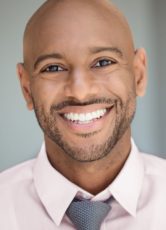
Paul Weber is a Los Angeles-based casting director who has cast over 75 features and shows over the past 20 years in the industry. He’s worked with many networks and studios, and most prominently, served as executive in-house head of television casting for MGM Studios. His work includes the “Stargate” franchise, “Spartacus: Gods of the Arena,” “Outlander,” “Pure,” “Dead Like Me,” “Poltergeist,” and “The Outer Limits.”
In a “Livestream AMA” interview, Weber shared insights into the business side of acting for emerging talents, and discussed why maintaining relationships in the industry is so important.
Tips for unrepresented actors
Casting directors are receiving more self-tapes than ever these days, so Weber insists it’s important to do your best to make a good impression. That means in addition to attaining quality headshots, a strong demo reel is a must. He understands that most actors who are just starting out don’t have an agent. So, he encourages newbies to do all they can to put themselves out there to get on casting directors’ radars. That includes using social media, and perhaps learning to write, produce, or direct so they can star in their own projects.
The importance of agents
Weber urges unrepresented actors to have a goal of finding an excellent agent. “An actor with an agent has just greater access to casting directors, and agents are uniquely positioned to pitch and promote actors to casting,” he explains. “And we trust agents for the most part, and we rely upon their judgment and their understanding of the actor.”
Creating content is essential
Weber strongly encourages talent to roll up their sleeves and start creating their own content. “You need to make a little bit of noise or else you won’t be heard,” he maintains. Creating content for social media, webisodes, or short films for film festivals is invaluable as it allows actors to gain and broaden their experience, and clips from the project can then be used for actor demo reels. All of this increases the potential of catching the interest of agents. When adding performances to demo reels, Weber assures talent, “If it’s good, we will notice.”
Breaking into the business
When working on union projects, Weber generally uses actors who have agents, especially for the larger roles. But for the smaller parts, he may consider unrepresented talent. “That’s how an actor gets in the union; that’s how an actor gets represented—by having a break,” he says. Thus, Weber will reach out to drama teachers, other casting directors, agents, and go to the theater to scout for new talent, and in doing so, may draw in actors who don’t yet have representation. If he believes certain actors are at a level to have representation, he will contact agents to recommend they meet them. In general, Weber goes to the major talent agencies to cast lead roles and will go to the smaller agents to find talent for the smaller roles. “I think I speak for my peers, too. We will offer opportunities to actors with smaller agencies for smaller roles. And that’s just how it works, and it works that way in most businesses as well,” he says.
Positive relationships play a key role in attaining an agent
Let’s say Weber sees the work of an actor who just graduated from drama school, and he thinks this performer might be a good fit for a specific role. He’ll invite the actor to audition, and then Weber describes the process this way: “I bring them in, the producers like them, we decide to give them a union card. All of a sudden, an agent might be interested because I might call them and say, ‘I just saw this really amazing actor. We just hired him. Why don’t you take a meeting with him?’ It’s all about relationships, and that’s why I really urge actors to create as much of an ongoing relationship with everyone in the industry, because it’s quite a collaborative enterprise for all.”
How important is a large following on social media
When comparing two actors who are essentially neck-and-neck for a role, the one having a large following on social media may tip the scale in their direction, although garnering a large following is not a must. Weber says, “We’ll still go with the best actor for the role.” Especially when it comes to smaller roles, having a large following does not matter much in the overall scheme of things.
Social media tips
Weber has seen it all when it comes to actors’ social media posts. He advises: “Just be really gracious about your social media posts. Try not to get political out there…And make it about the work. Make it about how fortunate you are to work with filmmakers, you’re doing this short film, you’re doing this independent film. Don’t make it all about you, is my general advice, even though it is all about you. But you want to sort of convince us, ‘Oh, what a humble, gracious, humility-filled actor who’s really just so blessed to do the work, just be with other working professionals.’ And thank them for that.” In this way, social media can be a great benefit to actors. On the other hand, social media can backfire if an actor is not careful. “Just about anything else can get a person canceled these days, so you have to be careful what you say out there,” Weber cautions. To keep things positive, he says using the word “blessed” is helpful. “You can’t get canceled by using the word ‘blessed’—ever.”
Want to get your acting career started? Sign up or login to Casting Frontier and start auditioning today!
Related articles:
Casting Director and Acting Coach Paul Weber on Stronger Auditions
Casting Director Mike Lush on How to Score a Spot on a Reality Show
Jobs Actors Had Before They Were Famous




